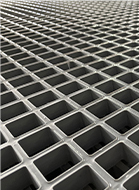loading...
- No. 9, Xingyuan South Street, Dongwaihuan Road, Zaoqiang County, Hengshui, Hebei, China
- admin@zjcomposites.com
- +86 15097380338
- Welcome to visit our website!
FRP Filtration Tank for Enhanced Water Treatment Solutions
Understanding FRP Filter Tanks A Comprehensive Overview
FRP, or Fiberglass Reinforced Plastic, has emerged as a superior material for constructing filter tanks, widely utilized across various industries including water treatment, chemical processing, and food production. The unique properties of FRP, such as its corrosion resistance, high strength-to-weight ratio, and versatility, make it an ideal choice for filter tank applications.
The Advantages of FRP Filter Tanks
One of the primary advantages of FRP filter tanks is their exceptional resistance to corrosion. Unlike traditional materials such as steel or concrete, FRP does not succumb to rust or degradation when exposed to harsh chemicals or environmental conditions. This durability extends the lifespan of the tank, reducing maintenance costs and the need for frequent replacements. Moreover, FRP tanks are lightweight, which simplifies transportation and installation processes, ultimately leading to a more cost-effective operation.
Another significant benefit of FRP filter tanks is their customization capabilities. Manufacturers can tailor the size, shape, and specifications of these tanks to meet specific operational requirements. This flexibility allows industries to optimize their filtration processes, enhancing efficiency and performance.
Applications of FRP Filter Tanks
FRP filter tanks are particularly popular in water treatment facilities, where they are used for various filtration processes, including sand filters, carbon filters, and multimedia filters. These tanks efficiently remove impurities, contaminants, and pollutants from water, ensuring that the treated water meets safety and quality standards.
frp filter tank

In agricultural applications, FRP filter tanks play a vital role in irrigation systems. They are used to filter out debris and sediment, protecting pumps and irrigation equipment from damage and ensuring efficient water distribution. Furthermore, in chemical and pharmaceutical industries, FRP filter tanks are employed for solvent filtration and other processes that require high purity levels. Their non-reactive nature ensures that the integrity of the filtered substances remains uncompromised.
Installation and Maintenance
Installing an FRP filter tank requires careful planning and execution. It is crucial to ensure that the tank is placed on a stable and level surface to prevent any structural issues down the line. Proper installation also includes securing plumbing connections and ensuring that the tank is adequately sealed to prevent leaks.
Maintenance of FRP filter tanks is relatively straightforward, primarily due to their corrosion resistance. Regular inspections are recommended to check for any wear or damage, and routine cleaning can ensure optimal performance. Depending on usage, filter media may need to be replaced periodically to maintain efficiency.
Conclusion
FRP filter tanks represent a significant advancement in filtration technology, offering numerous benefits over traditional materials. Their durability, customization options, and suitability for a wide range of applications make them indispensable in many industrial processes. As industries continue to focus on efficiency and sustainability, the demand for FRP filter tanks is likely to grow, underscoring their role in modern filtration systems. Whether in water treatment, agriculture, or chemical processes, FRP filter tanks are an integral component of effective filtration solutions.
-
The Rise of FRP Profiles: Strong, Lightweight, and Built to LastNewsJul.14,2025
-
SMC Panel Tanks: A Modern Water Storage Solution for All EnvironmentsNewsJul.14,2025
-
GRP Grating: A Modern Solution for Safe and Durable Access SystemsNewsJul.14,2025
-
Galvanized Steel Water Tanks: Durable, Reliable, and Ready for UseNewsJul.14,2025
-
FRP Mini Mesh Grating: The Safer, Smarter Flooring SolutionNewsJul.14,2025
-
Exploring FRP Vessels: Durable Solutions for Modern Fluid HandlingNewsJul.14,2025
-
GRP Structures: The Future of Lightweight, High-Performance EngineeringNewsJun.20,2025
